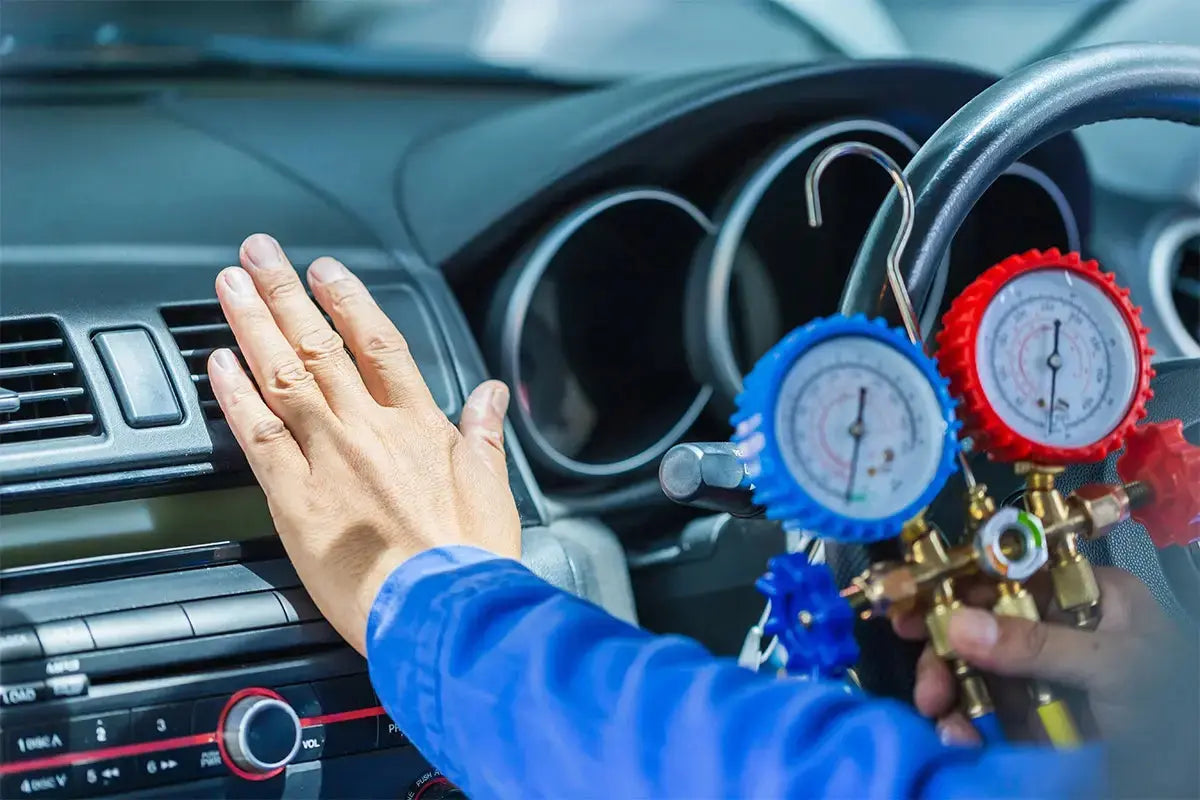
3 Signs Your Car Air Conditioning Needs a Checkup
A leak in the system usually drains the refrigerant, leading to air conditioning problems. When there is insufficient refrigerant in the system, the pressure drops, preventing the various parts from doing what they should. Read on to learn more in this article of shine armor blog!
Car Detailing Exterior products of shine armor:
- Graphene Ceramic Spray
- Fortify Quick Coat
- Revive Car Scratch Remover
- Graphene Ceramic Nano Glass Coating
- Anti-Fog Hero
- Car Upholstery and Interior Cleaner
Some typical auto air conditioning problems are listed below:
Unusual Sounds
It isn't comforting if a new sound wasn't there before. Air conditioners typically make a rattling, pounding, or humming sound.
Weak Airflow or Almost No Air
When the air is cool but might be much colder, it has difficulty reaching a comfortable temperature. It may require repair if your air conditioner blows warm or room-temperature air. If the air is cold but barely seeping through and takes longer than expected to get out, it's time for a checkup.
Weird Smells Coming From the AC
Don't ignore a weird odor coming from the air conditioner. This could indicate a refrigerant leak or some more serious issue that must be addressed.
Car Air Conditioning Checkup
You undoubtedly have some concerns if the air conditioner in your vehicle is producing warm air. Where do I go wrong? How much money will be needed to fix it? Should I try to fix it myself?
It is advisable to have your car's air conditioner serviced annually. Some mechanics recommend getting it serviced twice a year. Once, the summer heat has diminished in autumn before the colder months begin and again in the spring to prepare for the weather.
Here are some essential details you should know;
Make sure to turn the air conditioning to its setting for ventilation inside the car. Please pay attention to the quality of air coming out as it can provide information about the cause of the problem.
If you notice that the air inside feels slightly warm and smells, it might be an idea to replace the cabin air filter. You can find it in the glove compartment. Unfortunately, not many people remember to change it as frequently as they should.
If there is any leakage or problem, it's advisable to take your car for repairs with the compressor.
Signs of AC Issues in Cars
Any symptoms mentioned below should remind you that it's time to schedule auto maintenance. Remember that your air conditioner compressor is crucial to your car's AC system. If the system fails, you will need to replace it.
Dripping Fluids
Fluid leaks from the air conditioner compressor are a common sign that the compressor is failing. Leaking air conditioning fluid is a sure sign that the car's compressor is malfunctioning because the refrigerant fluid helps chill the air inside the vehicle. A complete air conditioning system malfunction may occur if fluid leaks and damages other components.
Scratched Vacuum Hoses
Suction lines are piping in an air conditioner that draws refrigerant from the compressor. If they are damaged, it might lead to serious issues. Your car may overheat and even spring a leak if you do this. Take your vehicle in for service immediately if you see any fractures or damage to the suction lines.
Steamy Air
The air temperature from the vents is another standard indicator that your air conditioner's compressor is failing. This occurs because the compressor wears down and can't supply as much cold air to the appliance. When the air conditioning in your automobile stops working as well as it used to, it's probably time to replace the compressor.
Vehicle AC Maintenance
Extreme summer temperatures can be hazardous to both you and your vehicle. Fortunately, your air conditioner can save the day! But here's the thing: it could not work poorly if you don't properly care for and maintain your air conditioner.
Check the Cooling Appliances
Hot air may be released from the vents when the cooling fans malfunction due to an electrical problem.
Advice: Look at the condition of the cooling fans. A mechanic should check the wiring, fuses, and sensors if you can't find any. The cooling fan system may require replacement.
Condenser Check
The condenser lowers the temperature of the high-pressure refrigerant gas compressed earlier in the system.
However, if it's dirty, the airflow into the front of your car will be restricted, and the radiator won't be able to cool the refrigerant once it's been heated by the compressor. This will cause warm air to enter the car's interior.
If your car's air conditioner is not blowing cold air, check the condenser (located in front of the radiator) by popping the hood. If the condenser's grilles are clogged or dusty, flush them with water using a hose. Get it checked out by a mechanic to see if it needs to be replaced if it's damaged.
Continuously Monitor the Freon Levels
Refrigerant is used to chill the air your air conditioner pumps into your cabin. If you run out of refrigerant fluid, your air conditioner will stop functioning.
Advice: Have your mechanic inspect the refrigerant level in your vehicle during routine maintenance. They can also fix the problem before any damage is done if the refrigerant level drops too low because of a leak.
Maintain Your Air Conditioner Regularly
Regular maintenance is essential for adequately operating any equipment or its component elements. Your air conditioner is no different; it needs regular maintenance. It keeps your air conditioner in good working order and prevents you from paying for expensive repairs due to neglect.
In the End
If your car's air conditioner is giving you any of the above problems, it's in your best interest to have it serviced as soon as possible. Recognizing the warning signals in advance is crucial to prevent a breakdown. If your vehicle has been acting up repeatedly, it may be time to have the air conditioning serviced.
Related blogs:





